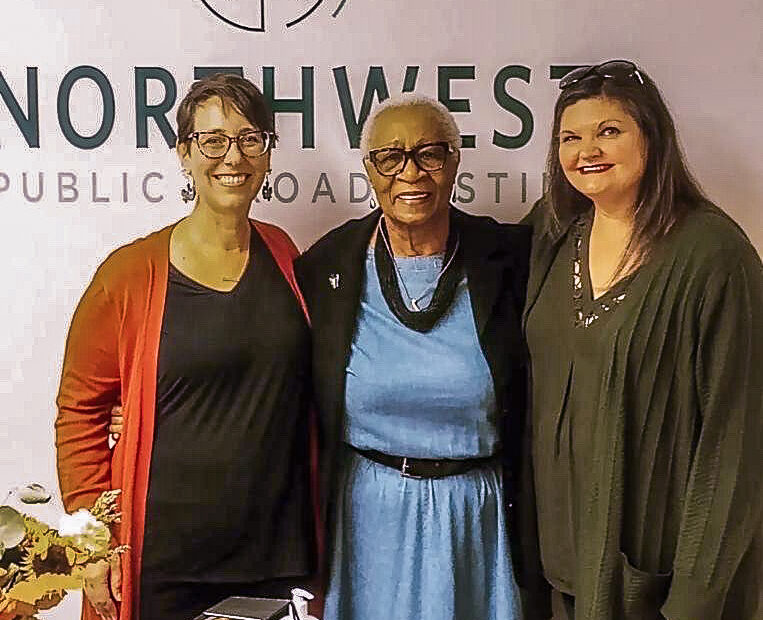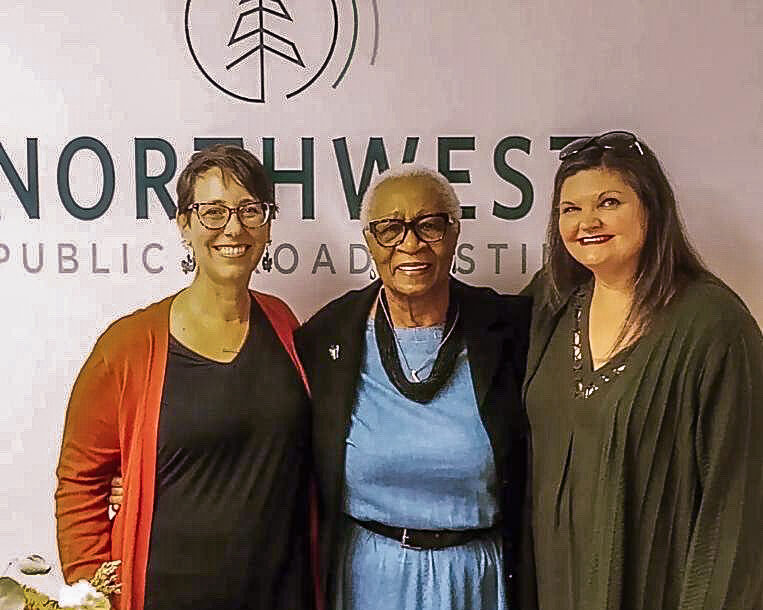
Plenty of Good Room: Educators bring gospel, spirituals, and civil rights history to the Inland Northwest
Listen
(Runtime 3:34)
Read
Connor Henricksen: It isn’t always easy to find live performances of gospel or spirituals in the Inland Northwest, but a group of educators is bringing it to us.
Dr. Daly-Galeano: I’m Marlowe Daly-Galeano. I am the director of the Center for Teaching and Learning at Lewis Clark State College.
Prof. Buffington: And I’m Terry Buffington, the artistic founder and director of the Terry Buffington Foundation based in Pullman, Washington.
Dr. Graham: I’m Sarah Graham, and I teach music and humanities at Lewis Clark State College in Lewiston.
CH: So how did you all meet?
Prof. Buffington: Well, to make a long story short, there’s this wonderful historian down at Lewis Clark, Dr. Amanda Van Lanen, did a presentation down at the historic train on Grand Avenue. So I was there passing out my literature, and she was kind enough to take it back down to Lewis Clark to these ladies, and they reached out to me, that’s how we partnered. That was last year.
Dr. Daly-Galeano: And since then, we’ve done quite a few collaborations with our students. And Professor Buffington and we are excited to be working on some new ones.
CH: Their latest effort is a concert called “Plenty of Good Room: Spirituals, Civil Rights and Gospel Music.”
Dr. Graham: We’re using some music that comes right out of the 1865 slave song anthology. And that’s the primary source that we’re working with. And this is music that was never intended to be written down, unlike a lot of classical music. So some of those, we’re just gonna sing straight melody line, some we’re adding some harmony to, and then others are some arranged spirituals. So they’re more contemporary arrangements that people have taken, you know, those original versions and created parts and piano parts and things like that too.
CH: Now, a lot of your collaboration centers around using primary sources. What’s the importance of that?
Dr. Daly-Galeano: So I think in terms of teaching and learning, primary sources are essential for student and scholarly engagement. You can read a history book, and that’s very helpful, right? It’s an interpretation of history. But when you have a primary source, it’s a first hand document that gives you the perspective of someone living in the moment. And sometimes you find that primary documents will conflict, right, you know, about the same thing. And so you get multiple perspectives. And with archived materials, it’s especially exciting for students to be able to see and sometimes even touch or look at digital scans of something the way it looked in the moment it was created. And it makes that piece of history feel so much more real and living in their moment, even though it comes from an earlier time.
CH: All right. What is your favorite part about this collaboration?
Prof. Buffington: To collaborate gives you a chance to, to freeform, if you will, it’s almost like a jazz singer. When you do an improvisation. Everybody gets to bring something to the table, whatever their tune is, or whatever key you bring. It is so profound for these young ladies, these young professors to be doing this is a heavy load to carry when you’re trying to make the world better. And make sure that this democracy stay intact by teaching our young people the past because if you don’t know the past, you don’t know how to get through the future. And music is a beautiful way. I don’t know no better way to do that.
Dr. Graham: Amen.
CH: The first performance of Plenty of Good Room: Spirituals, Civil Rights and Gospel Music is this Sunday at 1 at St. James Episcopal Church in Pullman. There will be another performance in December. Find more info, and dive into Professor Buffington’s civil rights work at terrybuffingtonfoundation.org
















